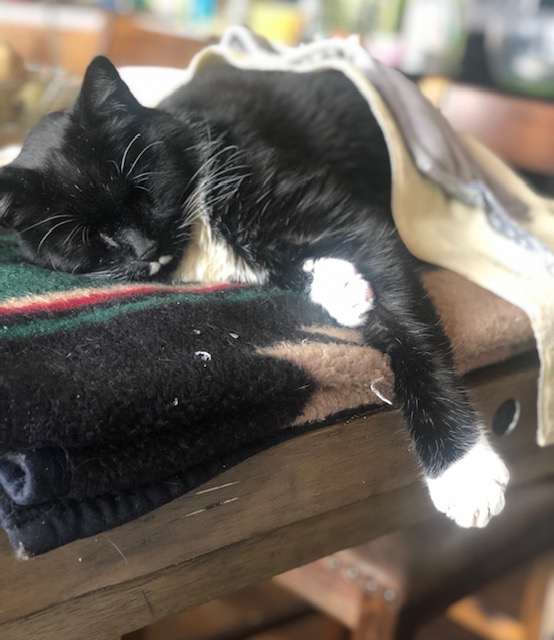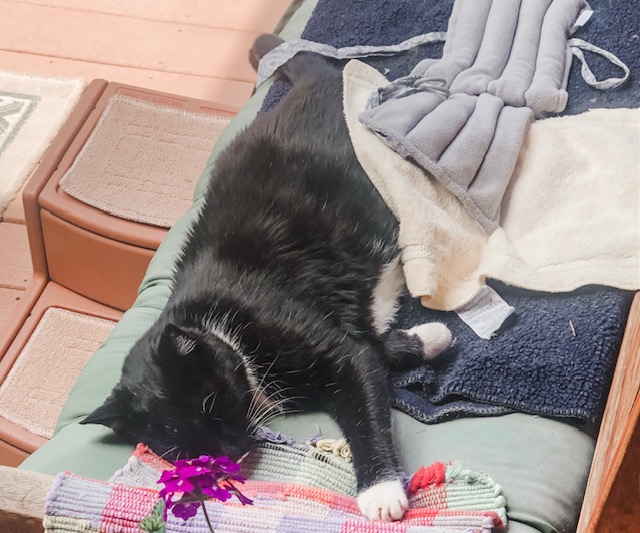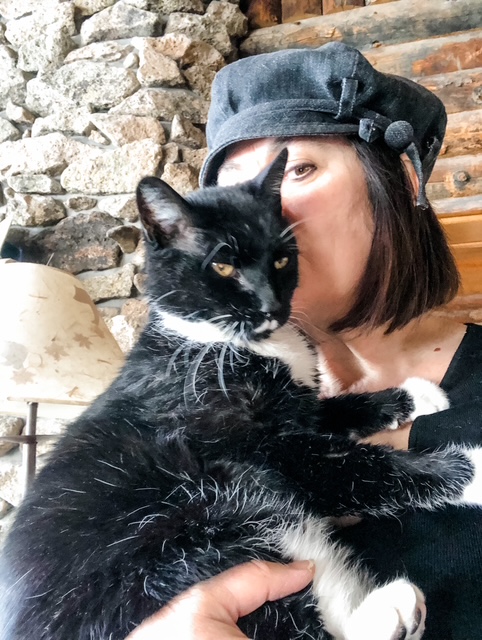If you share your life with a senior cat, you know how deeply the bond grows over time. That once-rowdy kitten who used to knock things off the counter “just because” may now spend most of their day curled up in a cozy sunbeam. With age comes wisdom, gentleness – and sometimes a few extra challenges.

Just like us, cats go through changes as they get older. They may become less agile, need extra warmth, or develop chronic health conditions. But aging doesn’t mean the end of vitality or joy. With just a little extra support and a lot of love, senior cats can thrive in their golden years.
Here are ten thoughtful, effective ways to help your senior cat stay comfortable, active, and well-cared for as they age:
1. Make Regular Vet Appointments a Priority
Senior cats – usually defined as 10 years and older – benefit from more frequent wellness exams. Many vets recommend twice-a-year visits, even if your cat seems fine. Age-related conditions like kidney disease, hyperthyroidism, dental issues, and arthritis can develop slowly and silently. Catching them early can mean a better outcome and less discomfort for your cat.
Ask your vet about senior blood panels and urine tests during checkups. These can provide important insights into your cat’s internal health, even before symptoms arise.
2. Create an Arthritis-Friendly Environment
Mobility issues are one of the most common challenges for older cats. If you notice your cat hesitating before jumping or avoiding high perches they once loved, arthritis might be the culprit. It’s estimated that 60% of cats over six years old and 70 – 90% of cats over 12 years old have arthritis.
Here’s how you can help:
- Add ramps and pet stairs to favorite furniture or windowsills.
- Provide padded beds in multiple locations to ease pressure on joints.
- Keep litter boxes low-sided so they’re easy to enter and exit.
- Use rugs or mats to prevent slipping on hardwood or tile floors.
Even minor adjustments can make a major difference in comfort and mobility.
3. Consider Supplements for Joint and Overall Health
Joint-supporting supplements like glucosamine, chondroitin, MSM, and omega-3 fatty acids may help reduce inflammation and improve flexibility. Other supplements may support brain function, immunity, or digestion – depending on your cat’s needs.
Be sure to choose cat-specific products and always check with your veterinarian before introducing new supplements to ensure they’re safe and appropriate for your cat’s health condition.
4. Keep Them Active with Gentle, Engaging Play
Your senior cat may not chase after toys like they used to, but that doesn’t mean playtime should stop. Gentle daily play helps maintain muscle tone, supports joint function, and stimulates the brain.
Try:
- Feather wand toys waved slowly.
- Treat puzzles or interactive feeders.
- Laser pointers used at a moderate pace (never point these toward the cat or in the cat’s face).
- Rolling small toys across the floor.
Even five minutes a few times a day can go a long way in keeping your cat’s body and mind sharp.
5. Offer Elevated Food and Water Bowls
Neck strain, arthritis, and digestive issues can make eating from floor-level bowls uncomfortable for aging cats. Try switching to elevated bowls that bring food and water to a more natural, upright position. It may seem like a small change, but it can make mealtimes more enjoyable and reduce discomfort.
Bonus tip: consider using shallow, wide dishes to reduce whisker fatigue – something many senior cats become more sensitive to.
6. Provide Extra Warmth and Comfort
Senior cats often feel the cold more than younger cats do – especially if they suffer from arthritis. Creating cozy, warm resting spots around your home can significantly improve their comfort.
Some ideas:
- Heated cat beds (thermostatically controlled and pet-safe)
- Microwavable heating pads (always wrap in a towel and test the temperature)
- Fluffy blankets in favorite napping areas
- A spot near a sunny window with a soft perch
Cats love warmth, and your senior cat will thank you for the extra TLC.
7. Adjust Their Diet to Support Aging Bodies
As cats age, their nutritional needs change. Some may need more protein to maintain muscle, while others might benefit from a lower-phosphorus diet due to kidney issues. Weight gain and loss are both common in older cats and can be signs of health issues or dietary imbalances.
Talk to your vet (or a certified pet nutritionist) about the best diet for your cat’s age and condition. You may also want to:
- Add moisture to their meals with wet food or bone broth.
- Choose foods rich in antioxidants and anti-inflammatory nutrients.
- Consider softer pet treats that are high in protein. Life Essentials Freeze-Drive Salmon and Chicken treats are a favorite in our home.

8. Make Home Life Easier and Safe
Think about your cat’s daily routine and where they might struggle. A few simple changes can increase accessibility and reduce stress:
- Add nightlights near litter boxes or stairs to help cats with declining vision.
- Add baby gates near stairs especially for aging cats that may become disoriented at night.
- Keep food, water, and litter on the same level of the house, especially if stairs are difficult.
- Create multiple cozy rest areas around your home to minimize the need for movement.
- Brush them regularly if grooming becomes harder due to stiffness or limited mobility.
Senior cats appreciate consistency, so try to avoid sudden changes in their environment or routine when possible.
9. Keep Their Minds Engaged
Cognitive decline, or feline cognitive dysfunction (similar to dementia), can affect some senior cats. You may notice confusion, vocalization at odd hours, or changes in behavior.
Mental stimulation can help delay or slow cognitive decline:
- Play scent games with treats.
- Rotate their toys regularly.
- Try puzzle feeders.
- Use calming music or enrichment videos designed for cats.
Even older cats love new experiences when offered at their pace.

10. Give Extra Love, Patience, and Attention
Above all, your senior cat needs your presence, patience, and gentle affection. The older they get, the more they rely on their bond with you for comfort and security. Sit with them, talk to them, stroke their fur – be their safe, loving home.
Pay attention to behavioral changes. Is your cat sleeping more than usual? Vocalizing at night? Acting withdrawn? These could be signs they’re in pain or experiencing discomfort, and your loving attention can help catch those signs early.
In Closing:
Aging is a natural – and beautiful – part of your cat’s life. With mindful care, environmental adjustments, and lots of love, you can help your senior cat enjoy a comfortable, happy life filled with warmth, purrs, and peace.
Caring for a senior cat is both a responsibility and a gift. These wise, loving souls give us so much – let’s give them the best care we can in return.